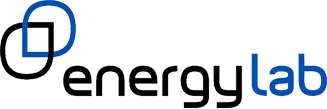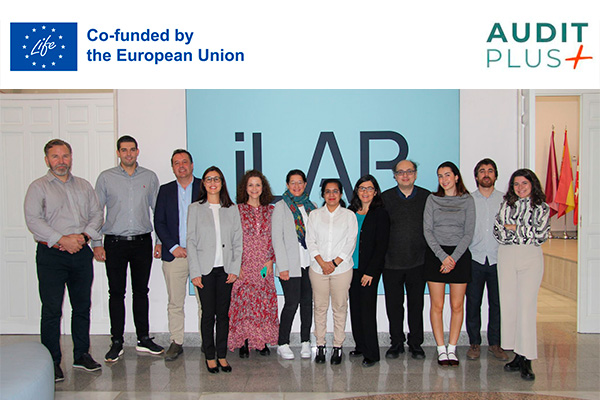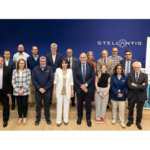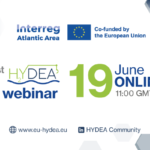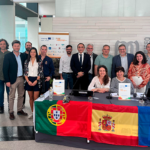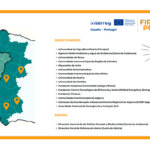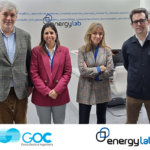The Audit Plus project, financed under European LIFE-CET-22 research framework, has officially begun its activity with a hybrid meeting held at the innovation center iLab in Madrid, attended all the consortium members. The project will extend over the next 3 years to help energy intensive industries (EEII) enhancing their energy efficiency with pilot implementation in Ireland, Spain and Poland and create plans to replicate its learnings into different industrial sectors.
The aim of Audit Plus project is enhancing energy audit schemes in energy intensive industries with practical approaches. The project will support Energy Intensive Industries (EII) with operational groups to provide technical, financial, regulatory and training support to start their energy efficiency journey and accompany them in the implementation of energy efficiency measures to meet EU emission reduction goals. The following objectives have been set:
- To establish working groups in 4 different industrial EU regions to understand nowadays gaps and needs to increase the impact of the energy audits performed in EII.
- To transform available technical and regulatory knowledge and support tools related to the implementation of energy efficiency measures and/or renewable energy generation into practical know-how for value chain stakeholders.
- To reduce energy intensity of industrial processes in the EII involved in LIFE AUDIT-PLUS.
- To bring together policymakers, associations, private companies, and technologists to foster new standards and financial schemes to increase the investment in implementing energy efficiency measures identified in energy audit process.
In addition, other operational objectives are pursued:
- Activation of regional energy efficiency ecosystems.
- Provision of tools and resources to fulfil gaps identified by regional ecosystems.
- Implementation of integral energy efficiency consultancy service for Energy Intensive Industries.
- Develop a sustainability plan and replication and exploitation of results.
- Dissemination and communication, including networking with other CET projects.
The project is coordinated by International Energy Research Centre (IERC), and has five partners: Asociación de Investigación de las Industrias Cerámicas (AICE), Narodowa Agencja Poszanowania Energii SA (NAPE), Energylab, Asociación de Empresas de Eficiencia Energética (A3E) and Lawler Sustainability through an agreement with the European Climate, Infrastructure and Environment Executive Agency (CINEA) as EU executive agency.
In Ireland, Audit Plus project will focus on the pharmaceutical, chemical and healthcare sectors; in Spain two different sectors will be addressed: ceramic sector (floor and wall tiles, bricks, tableware) in Castellón and cold demanding industries from the fishing and food processing sector in Galicia and in Poland, on the food processing sector.
Energy Intensive Industries (EII)
Industry represents 25,6% of the EU final energy consumption and 15% of its emissions according to 2019 data of the European Commission. Half of that energy is demanded by Energy Intensive Industries (EII), industries where energy costs are a high proportion of their production costs.
In this sense, the European Alliance of Energy Intensive Industries represents over 30.000 companies and 2,8 million direct employees in the EU across the following sectors: chemical industry, cement, paper industry, ceramic industry, lime, ferro-alloy producers, chlor-alkali industry, iron and steel industries, gypsum industry, metals, clay, petroleum industry, and glass industries.
Initially, EU Commission has paid special attention to iron and steel, refineries, cement, petrochemical and fertilizer sectors because they have the greatest share of emissions. However, the war in Ukraine and the new priorities established in the REPowerEU strategy are prompting to find new opportunities because these is still a long way to go in other sectors.
LIFE program
The LIFE program is the only instrument of the European Union dedicated exclusively to finance environmental conservation projects and the development of community policies and legislation on environmental matters.
This project has received funding from the European Union’s LIFE-CET environmental and climate programme under grant agreement N°101120511 Co-funded by the European Union. Views and opinions expressed are however those of the author(s) only and do not necessarily reflect those of the European Union or CINEA. Neither the European Union nor the granting authority can be held responsible for them.
